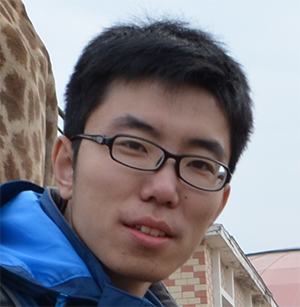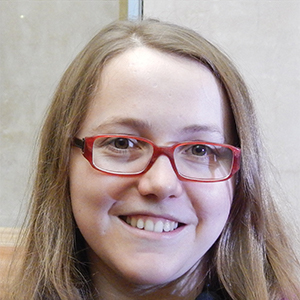Selenium led Zhao from icy hometown to German hospitality
Wenchao Zhao is fascinated by selenium or, more accurately, what happens when it is lacking.
The 2020 JBC Herbert Tabor Early Career Investigator Award winners will present their work at the 2021 ASBMB Annual Meeting, 1:45–3 p.m., Tuesday, April 27.
Find out about registering for the annual meeting here.
A trace element in soil, selenium is an essential nutrient for many species, including humans. Its deficiency is associated with Keshan disease, a cardiomyopathy first identified in the Keshan county of Heilongjiang province in northeastern China, bordering Russia. Zhao’s hometown is Harbin, the capital of that province, a city of more than five million people known for cold weather and the world’s biggest ice festival.

Keshan disease used to be widespread in China, especially in Heilongjiang province, before the government started a selenium supplementation program in the 1970s. Research into the mechanism of selenium action in physiology remains important, not least because a form of thyroid disease is caused by mutations in the selenium pathway.
Zhao decided to study the effect of selenium deficiency using chickens when he was doing master’s degree research in his hometown. This descriptive research prompted him to seek laboratories studying the molecular mechanism of selenium action. Ulrich Schweizer’s lab at the University of Bonn’s Institute of Biology and Molecular Biology was a perfect fit, although Zhao spoke no German.
Zhao describes himself as “super lucky” to have Schweizer as his mentor. In addition to tutoring him in the lab, Schweizer helps him adapt to his unfamiliar German life. When Zhao couldn’t find an apartment right away, he lived at Schweizer’s house for his first month in Bonn.
Zhao is now writing his Ph.D. dissertation and hopes to finish his degree this spring. He doesn’t have firm post-graduation plans; learning to manipulate sequencing data from his research is a short-term goal.
When not working in the lab or playing basketball or soccer with his friends, Zhao is learning German. His favorite and most-used phrase is “Alles gut” — all is well.
Tissue-specific stability of key regulator of selenoprotein synthesis
Selenoproteins, characterized by the presence of selenocysteine, the 21st amino acid containing selenium in its sidechain, are essential to human health. Their main roles are in the antioxidative response and thyroid function. Not surprisingly, selenoprotein deficiency is associated with cancers, heart disease and neurodegeneration.
The biosynthesis of selenoproteins relies on selenocysteine insertion sequence-binding protein 2, or SECISBP2. Human mutations in SECISBP2 associate with clinical phenotypes of variable severity. Wenchao Zhao’s research, published in the Journal of Biological Chemistry and selected for the Journal of Biological Chemistry/Herbert Tabor Early Career Investigator Award, investigated the effect of two human mutations using mice.
Zhao and his colleagues found that while one mutation behaves like a null allele, the other shows a different phenotype in the liver and the brain. Specifically, the R543Q mutant of the SECISBP2 protein is unstable and undetectable in liver but retains residual function in brain.
Zhao’s research contributes to our understanding of why so many diseases of ubiquitous proteins affect specific organs, he said. “A mutation may not be equally detrimental in every cellular context, since cellular context can affect the stability of that protein.”
Enjoy reading ASBMB Today?
Become a member to receive the print edition four times a year and the digital edition monthly.
Learn moreGet the latest from ASBMB Today
Enter your email address, and we’ll send you a weekly email with recent articles, interviews and more.
Latest in People
People highlights or most popular articles

Simcox wins SACNAS mentorship award
She was recognized for her sustained excellence in mentorship and was honored at SACNAS’ 2025 National Conference.

From humble beginnings to unlocking lysosomal secrets
Monther Abu–Remaileh will receive the ASBMB’s 2026 Walter A. Shaw Young Investigator Award in Lipid Research at the ASBMB Annual Meeting, March 7-10 in Washington, D.C.

Chemistry meets biology to thwart parasites
Margaret Phillips will receive the Alice and C. C. Wang Award in Molecular Parasitology at the ASBMB Annual Meeting, March 7-10 in Washington, D.C.

ASBMB announces 2026 JBC/Tabor awardees
The seven awardees are first authors of outstanding papers published in 2025 in the Journal of Biological Chemistry.

Decoding how bacteria flip host’s molecular switches
Kim Orth will receive the Earl and Thressa Stadtman Distinguished Scientists Award at the ASBMB Annual Meeting, March 7–10, just outside of Washington, D.C.

Thiam elected to EMBO
He was recognized during the EMBO Members’ Meeting in Heidelberg, Germany, in October.

